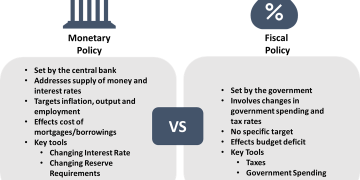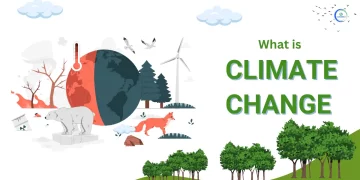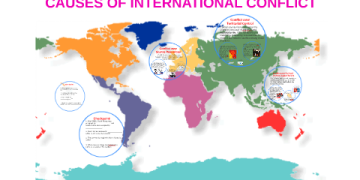Introduction
Every generation leaves its mark on history, but the pace of change in the 21st century gives the youngest cohorts—Generation Z (born roughly between 1997–2012) and Generation Alpha (born after 2013)—a unique role in shaping the future. Unlike their predecessors, these generations are growing up in a world defined by digital technology, climate anxiety, shifting geopolitical balances, and evolving cultural norms. Their values, behaviors, and choices will determine how societies adapt to global challenges and opportunities.
This article explores the transformative potential of Gen Z and Gen Alpha across key dimensions of society, including culture, politics, education, technology, and the workplace. It does so not in the form of a linear academic essay, but as a multi-perspective exploration, weaving together current trends, future scenarios, and case examples.
1. Digital Natives and the Tech-Saturated World
Gen Z is the first generation to grow up entirely in the age of the internet, while Gen Alpha is immersed in a reality of smartphones, artificial intelligence, and immersive technologies like AR and VR from birth. This tech immersion has several implications:
- Redefining Communication: Social media platforms such as TikTok, Instagram, and emerging decentralized apps are not just entertainment but tools of identity and activism.
- Education Transformation: Online learning, AI tutors, and gamified knowledge will likely dominate how Gen Alpha acquires skills. Traditional classrooms may become hubs for collaboration rather than rote learning.
- New Economies: Cryptocurrencies, NFTs, and the creator economy are areas where these generations are already active, reshaping how wealth and influence are distributed.
2. Cultural Shifts and Identity Politics
Younger generations are more diverse and globally connected than any before them. This shapes their worldviews:
- Fluid Identities: Gender, sexuality, and cultural affiliations are increasingly seen as spectrums rather than fixed categories. This challenges institutions built on rigid binaries.
- Global Culture: Music, fashion, and media are less tied to national boundaries. K-pop, anime, and global streaming platforms illustrate how youth shape hybrid cultural identities.
- Consumer Power: Gen Z and Alpha use their purchasing power to reward brands that align with their values, from sustainability to inclusivity.
3. Political Participation and Social Activism
Unlike the stereotype of disengaged youth, both Gen Z and Alpha are politically aware and socially active:
- Climate Action: Figures like Greta Thunberg exemplify how Gen Z is leading climate movements. Surveys show overwhelming concern among young people about ecological futures.
- Digital Activism: Online platforms empower activism on issues from racial justice to mental health awareness.
- Future of Democracy: Their mistrust of traditional institutions may push toward new governance models—more decentralized, participatory, and technology-driven.

4. The Workplace of Tomorrow
The arrival of Gen Z and Alpha in the workforce will coincide with rapid automation and the expansion of the gig and digital economies:
- Flexibility Over Stability: Many young workers prioritize remote options, purpose-driven jobs, and work-life balance over traditional notions of stability.
- Skills of the Future: Creativity, adaptability, and digital literacy will outweigh narrow technical skills. Lifelong learning will be central.
- Intergenerational Collaboration: With longer life expectancies, workplaces will be shared by four or five generations, creating both tension and opportunities for mentorship.
5. Future Scenarios: Imagining 2050
To understand the long-term influence of Gen Z and Alpha, consider three possible scenarios for 2050:
- Optimistic Future: Youth-led climate action and inclusive politics reshape societies into sustainable, equitable communities. Technology enhances human potential while protecting the planet.
- Challenging Future: Persistent inequality, digital divides, and climate disasters create generational rifts, with young people radicalizing against entrenched elites.
- Hybrid Future: Progress is uneven; technological advancements coexist with deep global disparities, and the struggle for justice and sustainability remains ongoing.
6. Case Studies
- Digital Activism in Asia: Youth movements in Hong Kong, Myanmar, and South Korea illustrate how Gen Z uses technology for political mobilization.
- Youth-Led Entrepreneurship in Africa: In Kenya and Nigeria, young innovators are leveraging mobile finance and renewable energy to address local problems.
- Climate Politics in Europe: European youth parties and student strikes highlight the centrality of ecological issues to the younger generations.
Conclusion
Generations Z and Alpha are not just inheritors of the future—they are already shaping it. From redefining identity and culture to pushing the boundaries of political activism and technological innovation, they embody both the challenges and opportunities of a rapidly changing world. Their global connectedness, digital fluency, and urgent focus on sustainability position them as transformative forces in the decades ahead.
The task for older generations, institutions, and policymakers is not to resist these shifts but to collaborate with youth, recognizing their agency and potential. In doing so, societies may find innovative paths toward more resilient, inclusive, and sustainable futures.
















































